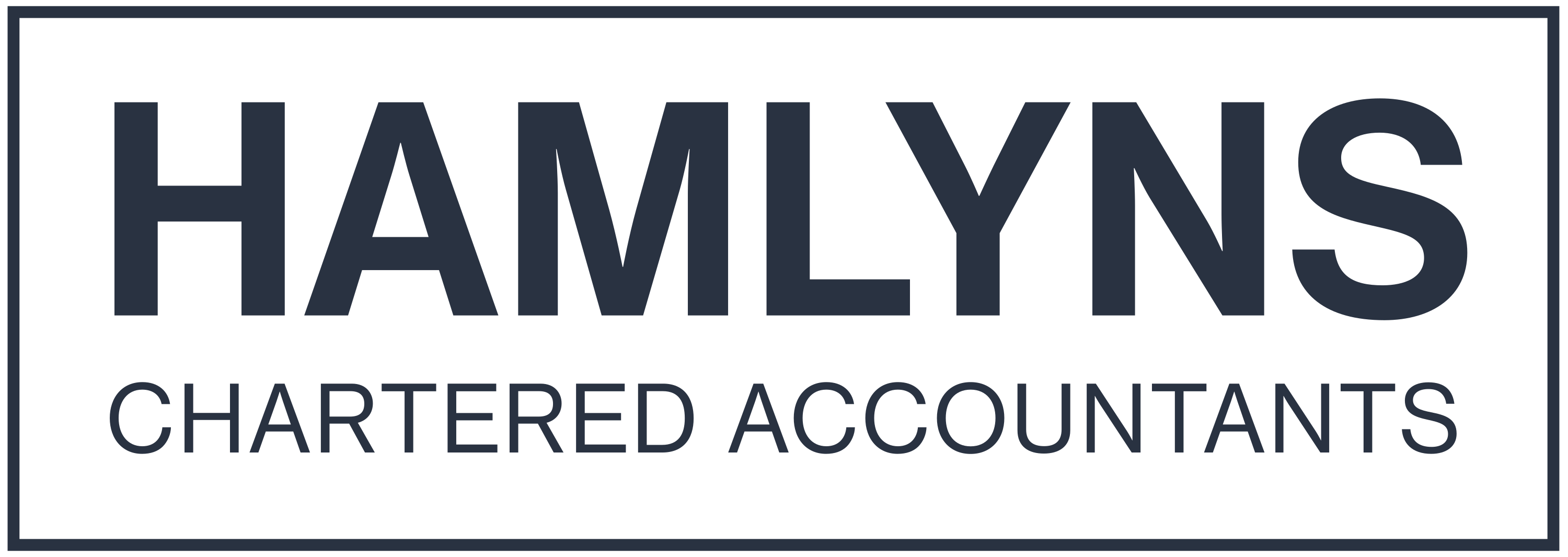Guide to Year-End Tax Planning

Planning strategies to consider before 5 April 2024
As the 2023/24 tax year winds down, now is an ideal time to evaluate your financial situation and leverage planning opportunities before the tax year-end deadline on the 5th of April 2024.
It’s crucial to ensure that you’ve evaluated and optimised your personal and business tax situation. The window of time you have now can present the perfect opportunity to leverage any allowances and reliefs available to you to enhance and bolster your tax profile.
Navigating your affairs and financial responsibilities strategically can be challenging if you’re up against the clock, particularly in the complex UK tax system. However, we can advise on how to optimise your tax position and make substantial savings while ensuring compliance before the all-important deadline, setting you up comfortably for the tax year ahead from the 6th of April 2024.
This guide will cover key areas to consider and address before the 5 April 2024 deadline:
Tax Allowances and Reliefs to Take Advantage of
Pension Contributions
Pension contributions should be a key consideration at the end of each tax year. Contributions to pension schemes can be made on behalf of your minor and adult children and your grandchildren. There are several advantages to doing so. For example, the pension scheme can reclaim the basic rate.
- Pension Contributions – In the current tax year of 2023/24, contribution limits have been augmented. The annual tax-efficient pension contribution limit is now the lesser of your relevant earnings or an annual allowance of £60,000 gross (less employer contributions and any ‘Carry Forward’), corresponding to a net payment of £48,000. Pension schemes can claim back basic rate tax from HMRC, with those on higher tax bands (exceeding 20%) receiving additional tax relief. Conditions apply if adjusted income exceeds £260k.
Contributions to pension schemes can be made on your minor and adult children’s behalf. All UK residents under 75 can contribute up to £3.6k gross (£2.8k net) annually, regardless of income.
- Pension ‘Carry Forward’ – The ‘Carry Forward’ rules allow you to carry forward unused allowances from the previous three tax years if you had a pension plan in place in those years. As we reach this tax year end, you’ll lose any unused allowance for the 2020/21 tax year if it remains untapped. Considering these rules when planning your pension contributions would be best.
Looking at your unique situation early allows enough time to explore options if extra funds to invest become available ahead of the deadline.
The Marriage Allowance
Offering savings of up to £252 in the 2023/24 tax year, the Marriage Allowance allows you to transfer a fixed amount of your Personal Allowance between spouses or registered civil partners.
The lower-earning partner can transfer 10% of their allowance to offset income tax for the higher earner.
To be eligible, a spouse earning less mustn’t pay income tax or their self-employed profits fall under the personal allowance threshold. The other partner must be a basic rate taxpayer.
This allowance can retrospectively apply for the past four tax years (in this case the earliest would be the 2019/20 tax year), so couples can leverage significant cumulative tax savings.
Tax Reliefs on Employment Expenses
Numerous reliefs exist for employees incurring work-related expenses, including:
- Professional body memberships – Claim tax relief on mandatory membership fees
- Working from home – Alleviate additional household costs of a home office.
- Business mileage – Receive tax reductions on fuel of a personal car used for work.
- Uniform or tools – Tax write-offs applicable for compulsory equipment.
Reviewing your employment records to identify potential claims before the 5th of April will enable you to take advantage of employment tax reliefs where eligible.
Allowances for Small Business & Rental Income
Individuals generating modest additional income, from renting out spaces to trading using eCommerce, could be entitled to some allowances.
These include:
- Trading Allowance – Earn up to £1k tax-free profit each year from a small trade or casual services using services like Amazon or eBay.
- Property Allowance – Receive £1k income-tax-free for minor rental earnings.
- Rent-a-Room Allowance – Let out furnished rooms in your home tax-free for up to £7,500 annually.
Commencing use of these allowances by the deadline allows you to generate tax-free cash flow over the next year.
ISAs
Key limits to note for 2023/24 include:
- Annual ISA Allowance – You receive a £20k allowance for new contributions, which can be allocated flexibly across Cash, Stocks & Shares, Innovative Finance and Lifetime ISAs. Married couples and civil partners can use both ISA allowances to house up to £40,000 between them.
- Previous Years ISA Allowance – Unused portions of ISA allowances should be discussed with Hamlyns about whether there is potential to sell shares yielding dividends outside the ISA allowance and buy them back.
- Junior ISA (JISA) Allowance – Children under the age of 18 are entitled to a JISA allowance of £9,000 per year. Consider funding a JISA to give them a nest egg when they reach adulthood. Child Trust Fund (CTF) monies must be transferred to a JISA if eligible.
Capital Gains Planning Opportunities
With higher CGT rates coming in April 2024, planning around the annual exemption and timing of disposals is crucial. Key aspects to keep in mind include:
- CGT Annual Exemption – Markedly utilise your full £6,000 allowance before the 5th of April through tax-free disposal of assets, before this allowance decreases to £3,000 from 2024/25 onwards.
- Share Sale & Repurchasing – Strategically trigger gains by selling then repurchasing stocks and shares to elevate the base cost and reduce future tax liability.
- Timing of Repurchases – Aim to repurchase after a gap of 30 days has passed, or execute a buyback through a spouse, civil partner, pension, or ISA, to derive maximum savings and relief.
Review holdings with our advisors to identify planning opportunities based on your investment profile and goals.
Preparing for Changes to Dividend Taxation
Dividend tax thresholds for 2023/24 remain at 8.75% and 33.75% for basic and higher-rate taxpayers, respectively.
For those with invested assets, maximising the £1,000 dividend allowance per year tax-free will be key. From 2024/25, this dividend allowance will be reduced to £500 per year.
Reduce dividend income in 2024/25 by selling income investments in the current year or adopting a turnover investment strategy to manage future liability. We can help with that, with our investment experts tailoring strategies helping to mitigate impending dividend tax hikes.
Gifting & Inheritance Tax Exemptions
Gifting certain assets can effectively reduce the value of estates when planning for Inheritance Tax (IHT) liability down the road. These exempt gifts can include gifts to spouses or registered civil partners, as well as contributions to charities or political parties.
Consider the following:
- Annual Exemption – Gift up to £3k from regular income outside your estate per tax year
- Small Gifts Allowance – Multiple recipients can each receive up to £250 tax-free as a gift.
- Wedding/Civil Ceremony Gifts – Give up to £5k to your own children or £2.5k to grandchildren as IHT-exempt gifts.
- UK Charities & Political Parties – Donations made outright are exempt, provided each gift is given to a different recipient, exclusively within that tax year.
Ensuring you fully utilise gifting exemptions each tax year enables you to transfer substantial value outside your estate over the long term.
Don’t Lose Your Allowances
Other smaller but helpful personal allowances that could prove useful include:
- Personal Savings Allowance – Earn £1k (or £500 for higher-rate taxpayers) of savings interest per annum tax-free.
- Starting Rate Band for Savings – Tax-free interest income on first £5k of savings for basic-rate taxpayers not exceeding the threshold.
- Rent-a-Room Relief – Only accessible to homeowners, allowing £7,500 tax-free rental income per year.
Review savings accounts, rental arrangements and expected interest/dividend income with your tax advisor to ensure you fully leverage available allowances.
Professional Tax Planning Support for Peace of Mind
With extensive tax expertise, Hamlyns supports you in navigating these complex considerations through services like:
- Personal tax return preparation and filing
- Tax liability forecasting based on planned transactions
- Estate planning & IHT mitigation guidance
- Growth investing & dividend planning
By reviewing your unique situation and goals, our team provides customised, actionable tax planning advice for the year ahead.
Don’t leave money on the table. Get in touch before the 5th of April 2024 to chat about tailoring an optimal tax minimisation strategy through proactive planning.





